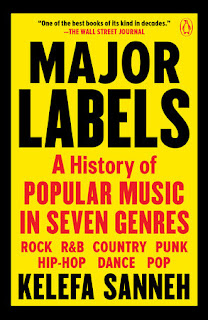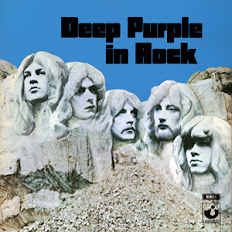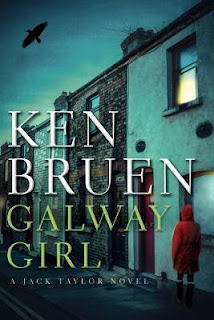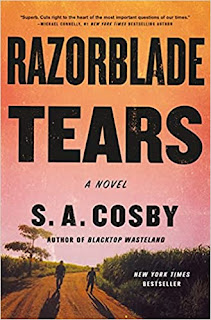Every couple of years or so, I find myself traveling somewhere that takes me out of my comfort zone. When my wife and I dated, I had intended to propose to her in Put in Bay, a quaint summer village on an island in Lake Erie. Yes, it's in Ohio, but it's an entire world away from there. (The ring didn't come back from the jeweler in time, so I had to propose when we got back.)
Put in Bay is many things. Historically, it's where Commodore Oliver Hazard Perry launched his famous counterattack against the British during the War of 1812. But the pace of life there is slower. You're surrounded by a large inland sea, and the sound of water lapping against the beach reaches the entire island.
These kinds of trips always have some sort of impact on my writing. No two places are the same. When I attended Bouchercon semi-regularly, I loved going to Toronto, Chicago, and Madison. (Indy is close enough to my home to be familiar.) Writing trips to Baltimore and even Frankfurt, Kentucky, an evening drive round-trip, took me away from normal. And it always finds its way into my writing.
Two years ago, my wife, her mother, and my stepson took a long-awaited trip down Route 66 that included me taking a frantic phone call at work. Candy informed me that she was driving through a blizzard.
In Arizona.
Four days before Memorial Day.
I couldn't get a full two weeks off at work but I wanted my own cross-country drive. So after meeting the family in San Francisco for the weekend, my stepson and I took a rented Ford Fusion back to Cincinnati, which took a week. We saw snow again on Memorial Day, drove through the alien landscape that is the Nevada desert, visited Vegas and Hoover Dam, snapped a photo of me holding a cup of Starbucks over my head in front of the Mormon Tabernacle (My former mother-in-law was offended, my ex-wife thought it was hilarious, and Candy's cousin, a Mormon preacher, thought that was the funniest thing he'd heard all summer.)
Every state was different. Arizona was freaking gorgeous. I got why the original Mormon settlers came to Utah in the first place. Wyoming is literally the big empty, and Colorado is nothing but mountains. Big mountains. We won't speak of Kansas other than to say after staring at a horizon curving away from me for six hours, flat earthers should be ashamed of themselves.
Which brings me to the most recent trip: New England. Through two marriages and even my dating life, I'd always wanted to take whoever the woman in my life was at the time on a romantic tour of the six states east and north of New York. Candy's health has made the romantic getaway a bit unfeasible, but we made it a family vacation.
But because Burlington, Vermont, where we stayed our first night in the region, is so remote - No major airport and not really on any of the main Interstates - we used Buffalo as a layover. So, Niagara Falls served as our stop on the way up. And let me tell you, you need to see the falls up close and personal at least once in your life. That much water moving between two inland seas is amazing. And the Seneca tribe of New York have built a really nice resort nearby.
The next day, we had to go cross western New York to get to Burlington. Candy's health prevents her from going more than seven hours a stretch by car, and the trip to Burlington went past that limit. We ended up getting lunch in Rome at a little hole-in-the-wall diner. While this was not a truckstop, it still proved the adage "Eat where the truckers eat." Had Eddie's been near an exit, they would have eaten there.
Vermont and New Hampshire were mostly pass-through states, and what pass-through states they were. Driving through the mountains, we saw our first bear, a cub crossing the road. But no moose. Lots of moose signs, but no moose. Maine, however, was the entire point of this trip. Specifically, Bar Harbor. Crossing the state put us in the real-life inspirations for Stephen King's fictionalized Maine. We even drove through the town that inspired
Pet Semetary. Naturally, while in Bar Harbor, I bought a copy of
Mr. Mercedes. Of course, I'm going to buy a Stephen King novel in the state where he lives. What kind of writer would I be if I didn't?
Bar Harbor is on an island, and there is something different about life on an island. Yes, Bar Harbor is crammed with tourists, even during the pandemic, but life is still slower paced. And the island is bigger than Ohio's South Bass. So there are multiple towns on it. The rest cater to boaters and hikers in search of Maine's Acadia National Forest.
Most of our money went into Bar Harbor. But most of our time was spent there. Massachusetts was almost a pass-thru, but we intended to stop at Quincy Market to get chowda from the source. (No kidding, both chowder shops we saw spelled it like that.) Had it not been raining so bad, we'd have toured the Samuel Adams Brewery as well. Rhode Island was most definitely a pass-thru, but I count it among states visited. Connecticut...
My wife fell in love with Connecticut. We stayed in Hartford and walked around the city center that evening. She wanted to move there. I wanted to move to Burlington, Vermont, but Hartford most definitely was easier to get to and from. A stop in Buffalo on the way back introduced us to the original Wings (the Anchor Bar) and weck (Schwabl's, which predates the Civil War) and home again the next day with a stop in Cleveland to see my brother.
Every town and every state had its own vibe. The further from the major cities we traveled, the more laid-back the attitude. But even Hartford, whose metro area bleeds into Boston's, seemed calmer than the industrial cities of Ohio, Pennsylvania, and New York. It had none of Boston's traffic congestion or cramped streets, nor did it bustle like New York City to the south. It was the perfect balance between urban area and isolated region. If I worked in NYC, I could see myself taking the train from Hartford and back daily.
And now, as I wrap up the follow up to Holland Bay (out November 22 from Down and Out Books. Thanks for asking.), I have a week spent in a part of the country I've never seen before. The history, the accents (I said "Bah Hahbah" and "Baston" for over a week), where the roads are laid out differently, the dialect is different, and so is the food. I crushed a lobster dinner. My wife got to indulge her inner shutterbug. And now I have a deeper well to draw creative inspiration from. "Write what you know" might be a cliched and ultimately debunked bit of writing advice, but it does make it a lot easier to make stuff up when you have more to model from.






















